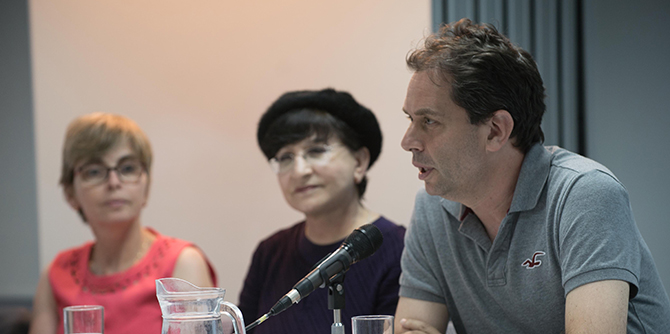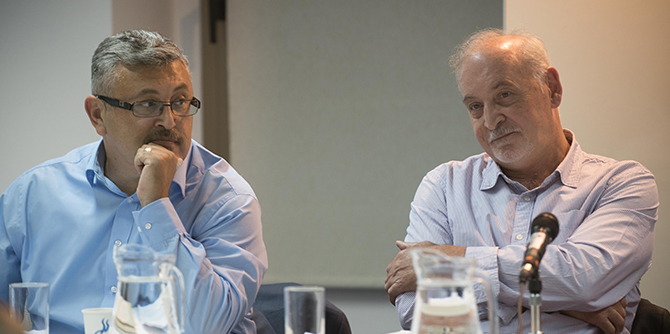On May 8, 2017, the Mandel Leadership Institute hosted a Mandel Platform (Bimat Mandel) event that explored issues related to leadership among members of minority groups. The opening lecture was delivered by
Professor Amal Jamal, head of Tel Aviv University’s international program in political science and communications and its Walter Leibach Institute, and the director of I’lam, the Arab Center for Media Freedom Development and Research. Professor Jamal reviewed various aspects of the concept of “minority,” and explored the role of opinions and identities in developing minority consciousness.
"It’s important to be aware of how the concept of “minority” is defined in each and every case, and of where the boundaries are between nationality, ethnicity, and citizenship,” said Professor Jamal. “One of the challenges for a leader is to shift the boundaries between majority and minority, and redraw the dividing lines,” he continued. “Power is a central element in defining a group as a minority; a group can be numerically large and yet still be a minority in sociological terms, such as women, or blacks under apartheid in South Africa.”
 Adv. Michal Halperin, Rabbanit Adina Bar Shalom, and Dr. Ram Fruman
Adv. Michal Halperin, Rabbanit Adina Bar Shalom, and Dr. Ram Fruman
The event included group discussions led by four “minority” representatives, who contributed their own perspectives:
Rabbanit Adina Bar Shalom, an Israel Prize laureate who paved the way for thousands of Haredim (ultra-Orthodox Jews) to receive an academic education, described herself as being a “minority within a minority,” since she is an ultra-Orthodox woman.
Dr. Ram Fruman, chair of the Secular Forum, which advocates for the establishment of a public secular education system in Israel, said that “secular Jews in Israel are a minority with a majority mind-set; the time has come for us to adopt minority strategies and ways of thinking.”
Issam Mahul, a former member of Knesset for the Hadash party and the secretary general of the Israeli Communist Party, also described himself as belonging to “a minority with a majority way of thinking.”
Adv. Michal Halperin, the head of Israel’s Antitrust Authority, spoke of her experiences as a representative of the female “minority” in the business world, which is largely dominated by men, and of the challenges facing women in their quest for gender equality.
The evening was moderated by
Dr. Ayman Agbaria, a faculty member of the Mandel Leadership Institute. In his closing remarks, he noted that leaders seeking to represent a particular minority must possess complex, rather than instrumental, knowledge about that minority – meaningful knowledge that influences the leader’s own identity, core assumptions, and moral choices. In today’s religiously, culturally, and ethnically diverse realities, this knowledge is subject to ever-present tension between epistemologies and moral systems that are context-specific, particularistic, and based on historical experience, and those that are universal, shared, and based on logic and understanding.
 Dr. Ayman Agbaria and Issam Mahul
Dr. Ayman Agbaria and Issam Mahul
The Mandel Platform series is a forum designed to enrich dialogue within the Mandel community and among the public at large through encounters with leading researchers, thinkers, policy makers, and practitioners in Israel. The series explores major issues such as education and community, economy and society, army and state, and the ultra-Orthodox community.
